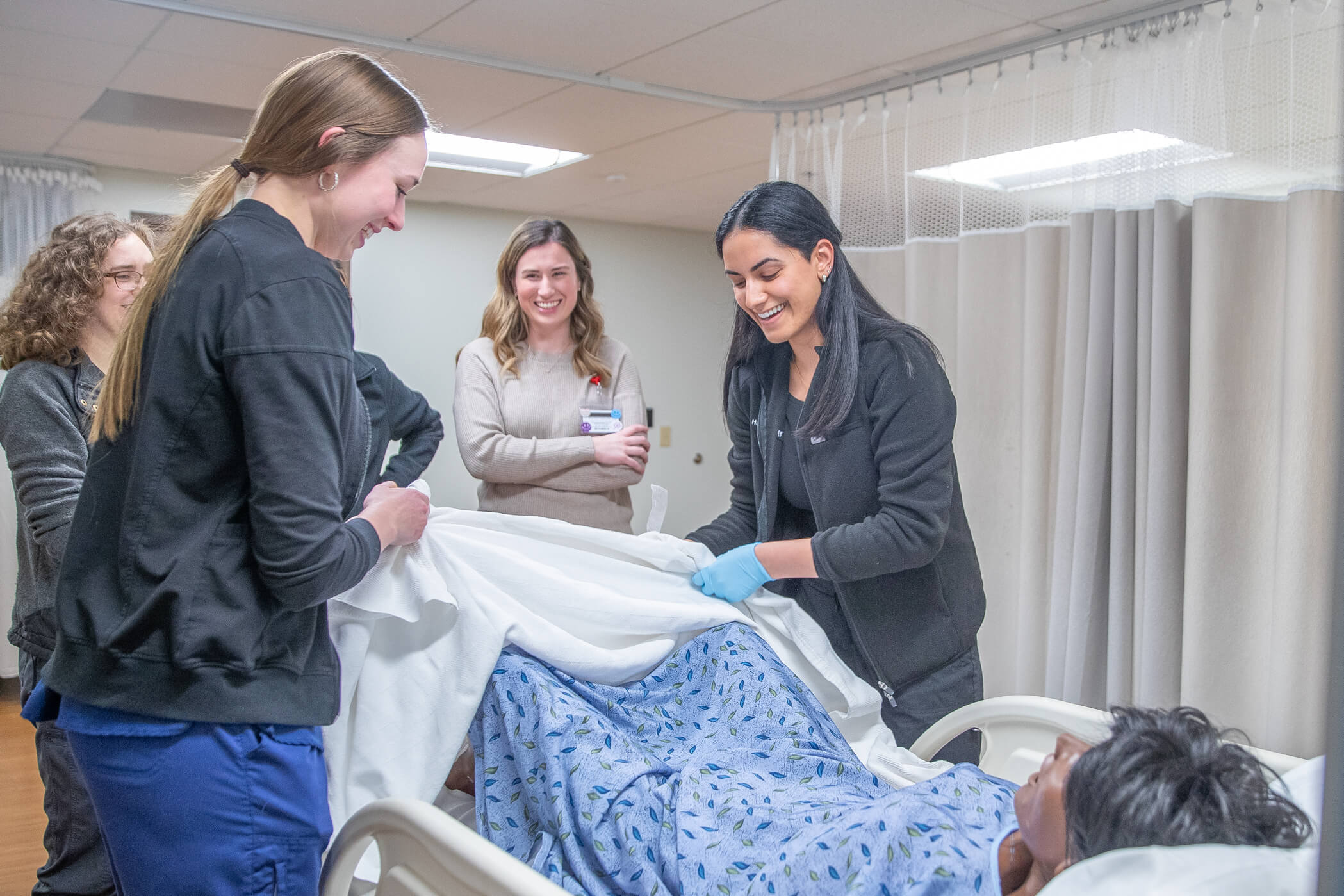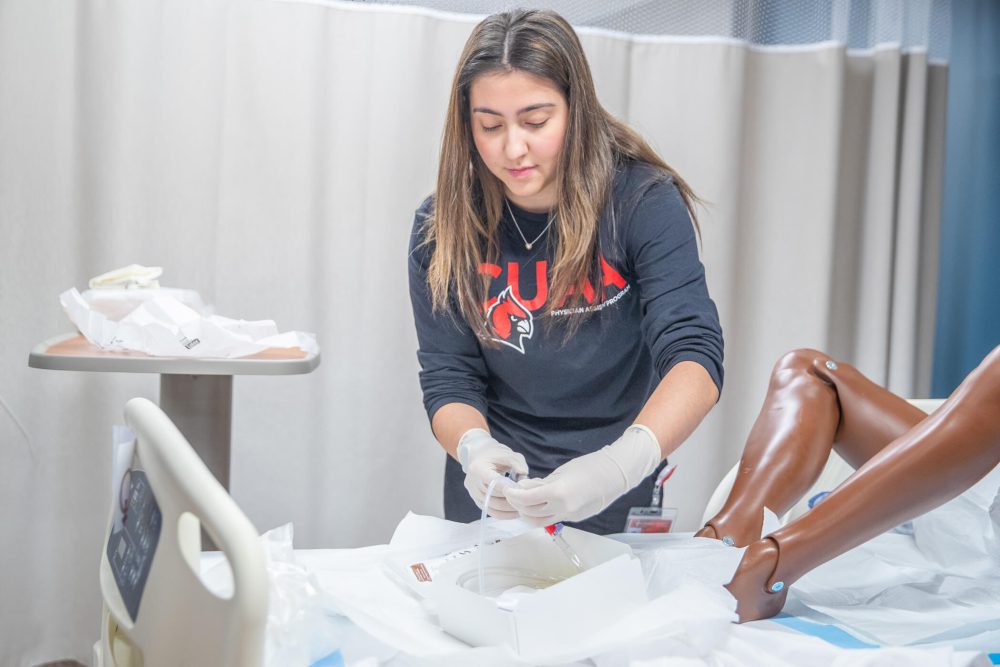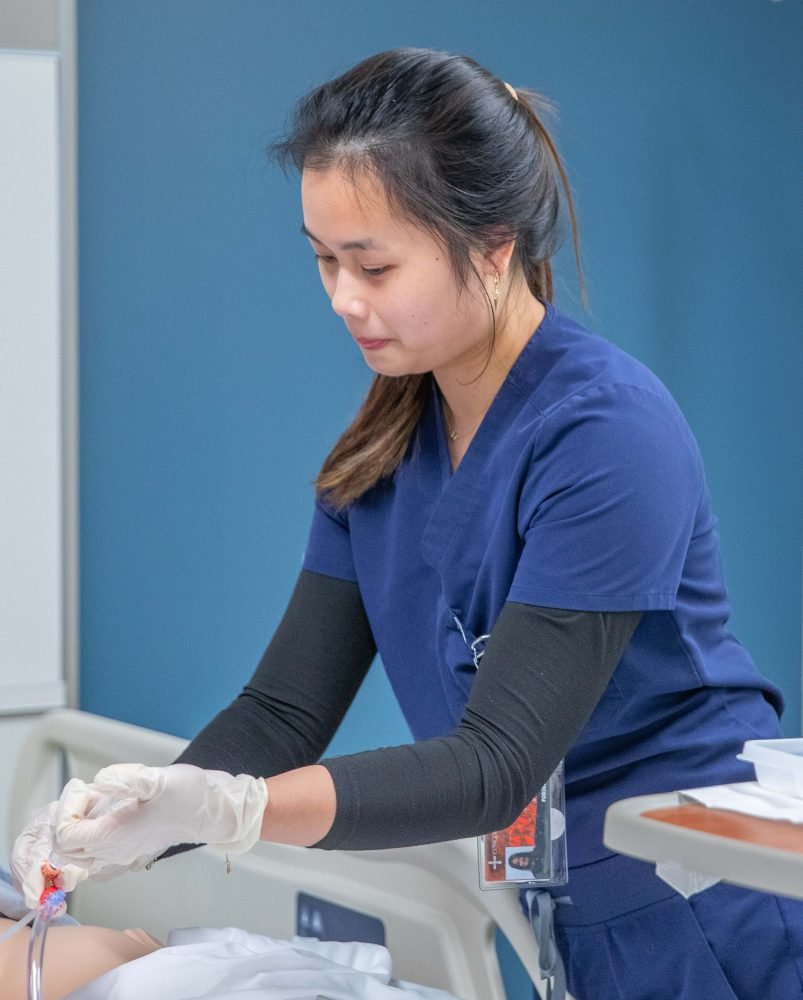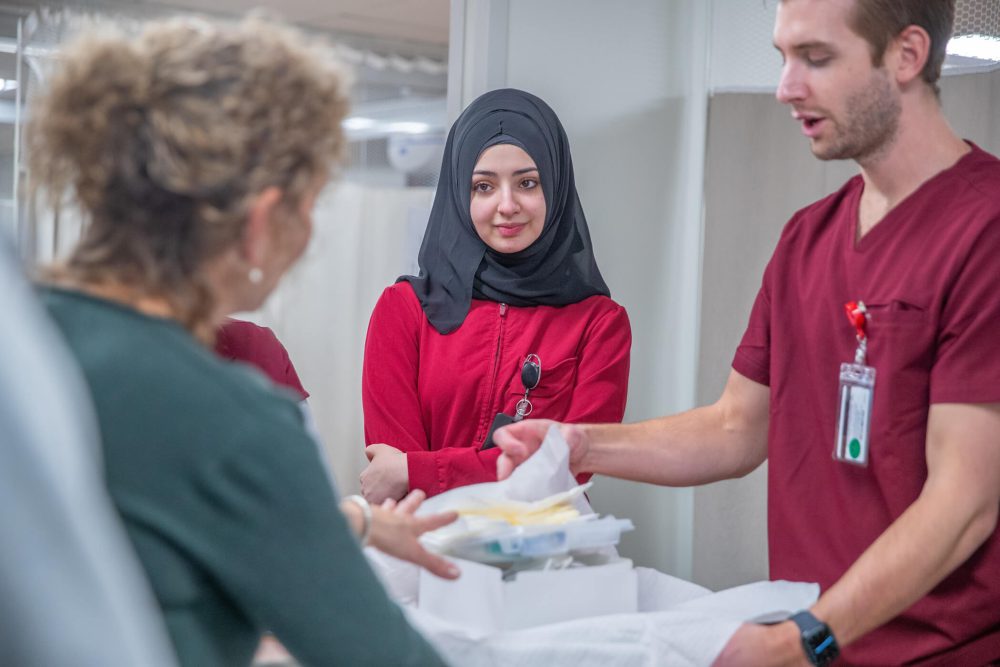
Applications for the next PA cohort start today, April 25, and end on January 15. CUAA’s PA program combines academic rigor, holistic care, rural commitment, and mentorship to prepare students to serve with compassion and excellence in diverse healthcare settings.
In the bustling landscape of healthcare education, one program stands out not just for its academic rigor, but for its distinctive approach to training future healthcare providers. Carved within the halls of Concordia University Ann Arbor, the Physician Assistant (PA) program offered here isn’t just about textbooks and lectures—it’s about instilling values, nurturing holistic care, and serving underserved communities.
Faith-Based Foundation: Cultivating Compassionate Healthcare Professionals
As a faith-based university, CUAA draws a distinct and unique cohort of applicants, driven by a strong faith-based intensity that sets them apart. “We attract candidates with a strong faith-based intensity, and that’s something that makes us stand out,” PA Director Carol Piesik remarked. Candidates are enticed not only by academic rigor but also by a deep commitment to serving others through the lens of their faith. This shared dedication to values and ethics fosters a community of healthcare professionals who approach patient care with compassion, empathy, and a holistic understanding of human well-being.
“We look for students who see becoming a PA as a vocation rather than a profession,” PA Co-Academic Coordinator Alexandra Guajardo emphasized. “The PAs who view it as vocation recognize that every day is a pleasure to be at work because they are helping patients.” The program’s faith-based foundation permeates every aspect of the educational experience, providing students with a framework for ethical decision-making, moral reflection, and personal growth.
Guajardo stressed the program’s emphasis on holistic care, noted, “The holistic approach means looking at the whole patient, in mind, body, and spirit—treating not only the physical body but also supporting the emotional through faith.” This comprehensive perspective empowers students to promote overall wellness and build meaningful relationships with those they serve. By recognizing the interconnectedness of mind, body, and spirit, students are equipped to delve deeper into the root causes of illness and provide truly holistic care. Through this approach, the PA program at CUAA nurtures healthcare professionals who view their work as a vocation rather than a profession, finding fulfillment in helping patients achieve well-being in all aspects of their lives. With a commitment to compassion and empathy, CUAA graduates are prepared to make a positive impact on the lives of those they serve, embodying the principles of faith-based care.

Rural Healthcare Commitment
The PA program goes beyond mere philosophy by actively addressing the critical shortage of healthcare providers in rural areas. Guajardo highlights the program’s robust emphasis on rural healthcare, noted, “Every year it gets harder to find providers who want to work in rural areas.” Recognizing this pressing need, the program takes concrete steps to incentivize students to pursue careers in underserved regions.
Central to this effort is the Health Resources and Services Administration (HRSA) grant, which CUAA’s PA program has secured. This grant serves as a cornerstone in the program’s commitment to rural healthcare. “Because of the HRSA grant, we can provide stipends of $2,000 to the students who go in rural areas,” Guajardo explained. This financial support not only serves to assist students with expenses and housing fees but also encourages them to consider careers in areas where their services are desperately needed.
CUAA’s PA program is one of two universities in the state of Michigan to have such a grant. This distinction underscores the program’s leadership and dedication to addressing healthcare disparities in rural communities. By leveraging the HRSA grant, CUAA’s PA program is able to make a tangible impact, providing vital healthcare services to populations that would otherwise struggle to access care.
Accreditation and Quality Assurance

Gaining accreditation is a rigorous process that goes beyond meeting basic academic standards—it’s about demonstrating a commitment to providing quality education and ensuring the highest standards of patient care. These standards are designed to ensure that PA programs deliver education that meets or exceeds industry benchmarks and prepares students to excel in their future roles as healthcare providers. “Accrediting bodies set rigorous criteria covering areas such as curriculum content, clinical experiences, faculty qualifications, student outcomes, and program resources,” Guajardo explained.
CUAA’s PA program is in the process of getting their full accreditation license. Right now the program has their provisional accreditation, and in 2025 the Accreditation Review Commission on Education for the Physician Assistant, (ARC-PA), will make their final visit to grant CUAA’s PA program full accreditation as long as the program meets all the qualifications. Guajardo said, “By meeting these standards, the program demonstrates its dedication to providing students with a comprehensive education.”
Moreover, accreditation serves as a mark of credibility and quality assurance for prospective students, employers, and regulatory bodies. “Graduating from an accredited program assures students that they have received education that meets nationally recognized standards,” Piesik noted. It also instills confidence in employers and patients, who can trust that graduates of accredited programs have undergone rigorous training and are well-prepared to enter the workforce.
Rigorous Curriculum and Clinical Rotations
The program has a rigorous curriculum and clinical rotations, designed to prepare students comprehensively for the multifaceted challenges of real-world healthcare. The curriculum is designed to provide students with a robust foundation, so they are equipped to handle the complexities of patient care across various settings. The entire program is 27 months with 15 spent in the classroom learning and 12 in rotations.
The curriculum encompasses a wide range of specialities, ensuring that students are well-rounded and prepared to address the diverse needs of patients. “From emergency medicine to clinic settings, our students gain exposure to a spectrum of healthcare scenarios,” Piesik emphasized. This comprehensive approach not only hones students’ clinical skills but also fosters adaptability and confidence in navigating different healthcare settings.
One of the defining aspects of the PA profession is its versatility. Unlike doctors and nurse practitioners, who are often specialized in particular fields, PAs are trained as generalists and have the flexibility to work in various healthcare settings and specialties. “PAs can go into all fields,” Piesik highlighted, “while doctors and nurse practitioners are often married to their specific field.” This flexibility not only offers PAs a wide range of career opportunities but also enables them to adapt to changing healthcare needs and pursue diverse interests throughout their careers.

Mentorship
The program’s emphasis is on fostering a supportive community where students feel valued and empowered to succeed. “It’s this tremendous and beautiful transformation,” Guajardo emphasized, “the maturity and blossoming, and seeing them grow.”
The mentorship provided by Piesik, Guajardo, and other faculty members plays a pivotal role in students’ development. Piesik spoke of her favorite part of watching students go through the program, stating, “One of the most rewarding aspects of observing students progress through the program is witnessing their growth and development. Knowing that they have acquired the knowledge and skills necessary to provide competent care is incredibly reassuring; if I were to walk into their hospital room, I would trust wholeheartedly in their ability to care for me.” This mentorship extends beyond academic guidance to encompass personal and professional growth, with faculty members serving as role models and sources of support for students navigating the challenges of PA school.
In the end, what sets this PA program apart isn’t just its academic excellence or its commitment to faith-based principles—it’s the deeply ingrained sense of service, community, and collaboration that defines its ethos. As Piesik aptly put it, “The students are the reason we are here.” And in nurturing these future healthcare providers, they’re not just shaping careers—they’re shaping lives, one compassionate act at a time.
Want in?
Are you looking to take the next step in your medical career? Becoming a Physician Assistant is a great option. You’ll have the advanced training to collaborate with one or more physicians and be able to examine, diagnose, treat, and counsel patients. There is a significant need in health care for high-level professionals. At CUAA, we strive to prepare you to provide quality health care in a respectful, caring manner. If you value the same things we do, consider pursuing your Master of Science in Physician Assistant Studies (MSPAS) with us.
—This story is written by Keara Chaperon, Social Media Manager for Concordia University Ann Arbor and Concordia University Wisconsin. She may be reached at keara.chaperon@cuaa.edu.